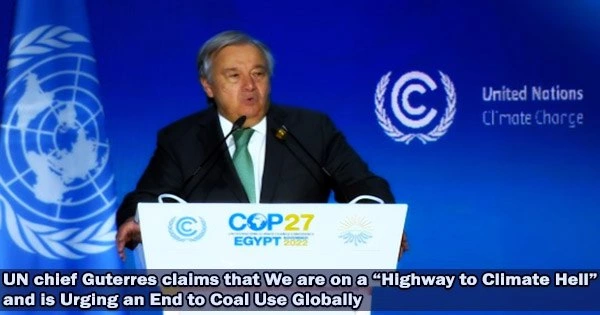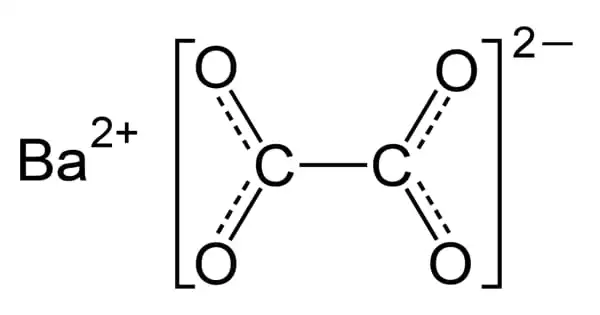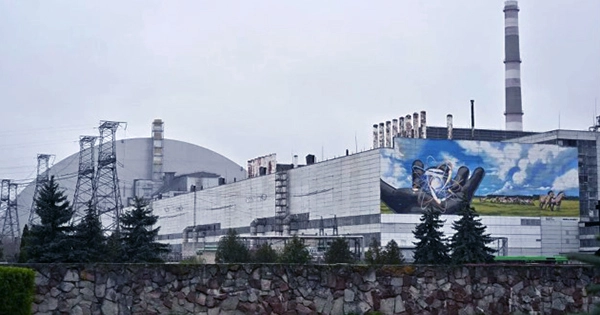The UN secretary general reiterated his appeal to phase out coal by the year 2040 and delivered a sobering warning to attendees of the COP27 summit on Monday (November 7, 2022), saying that the world was losing the battle against climate change.
“We are in the fight of our lives, and we are losing,” Antonio Guterres said.
“Greenhouse gas emissions keep growing, global temperatures keep rising, and our planet is fast approaching tipping points that will make climate chaos irreversible,” Guterres, who was speaking in Sharm el-Sheikh, Egypt, added.
“We are on a highway to climate hell with our foot still on the accelerator.”
In addition, he claimed that other conflicts, such as the one in Ukraine, had “caused so much bloodshed and violence and had dramatic impacts all over the world.”
“But we cannot … accept that our attention is not focused on climate change.”
While collaboration was needed to bolster peace efforts and end “tremendous suffering,” climate change was “on a different timeline, and a different scale.”
“It is the defining issue of our age. It is the central challenge of our century. It is unacceptable, outrageous and self-defeating to put it on the back burner.”
Many of the conflicts taking place around the world, Guterres said, were “linked with growing climate chaos.”
The war in Ukraine had exposed “the profound risks of our fossil fuel addiction” and the crises of today could not, he argued, be used as an excuse for “backsliding or greenwashing.”
The climate problem had been caused by human activity, so the solution lay in human action, Guterres said.
“The science is clear: Any hope of limiting temperature rise to 1.5 degrees means achieving global net-zero emissions by 2050,” he later added. “But that 1.5 degree goal is on life support and the machines are rattling.”
The reference to 1.5 degrees is a nod to 2015′s Paris Agreement, which aims to “limit global warming to well below 2, preferably to 1.5 degrees Celsius, compared to pre-industrial levels.”
It is believed that reducing human-caused carbon dioxide emissions to zero by 2050 will be essential to achieving the 1.5 degree Celsius objective.
Guterres told those attending COP27 that the point of no return was now dangerously close. “To avoid that dire fate, all G-20 countries must accelerate their transition now.”
“Developed countries must take the leads, but emerging economies are also critical to bending the global emissions curve,” he added. He called for the creation of a Climate Solidarity Pact “between developed and developing economies, and especially developed and emerging economies.”
Among other things, Guterres said the pact would see countries undertake extra efforts to cut emissions this decade and also “end dependence on fossil fuels and the building of new coal plants phasing out coal in OECD countries by 2030 and everywhere else by 2040.”
Guterres has previously called for a phase-out of coal, a fossil fuel that has a substantial effect on the environment.
Carbon dioxide, sulfur dioxide, particulates, and nitrogen oxides are only a few of the emissions from coal burning that are listed by the U.S. Energy Information Administration. It has been described by Greenpeace as “the dirtiest, most polluting way of producing energy.”
Coal has proved to be a contentious subject at climate change conferences.
India and China, two of the biggest coal consumers in the world, insisted at the last minute that the Glasgow Climate Pact’s language on fossil fuels be changed from “phase out” to “phase down” of coal at the COP26 summit last year. Following early protests, opposing nations eventually gave in.
Back in Egypt, Guterres said the U.S. and China both had “a particular responsibility to join efforts to make this pact a reality.”
“Humanity has a choice,” he later added. “Cooperate or perish. It is either a Climate Solidarity Pact, or a Collective Suicide Pact.”
















